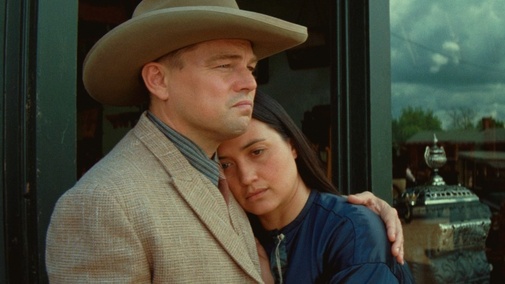The first major critics award of the season is upon us in the form of the New York Film Critics Circle. Killers of the Flower Moon was the big favorite, scoring two wins in Best Film and Actress, while a couple of other productions also won themselves a pair of prizes. Oppenheimer and May December were warmly embraced by the New York set, as was Franz Rogowski, whose Best Actor victory is this year's biggest surprise. The multiple winners and lack of disclosed runners-up means many of the season's hottest titles were left empty-handed. They include Maestro, Poor Things, Barbie, and The Zone of Interest, which many pegged as likely darlings among critics. Time will tell if other groups take the NYFCC's lead.
Though these things aim to celebrate cinema, one must recognize their fame as Oscar predictors. With that in mind, let's delve into numbers and trivia, history and percentages galore, as one explores this year's complete list of winners…
BEST PICTURE
KILLERS OF THE FLOWER MOON
In its first 88 years, 78 of the NYFCC Best Film winners went on to receive Academy Award Nominations in Best Picture. Thirty-two won the Oscar. Statistically, that means 88% of their winners get a nod from AMPAS, and 36% take home their biggest prize. If one just counts the 21st century, the numbers are 78% and 22%, respectively.
The most recent NYFCC champion that failed to get a single Oscar nomination was 2020's First Cow. Overall, Day for Night, winner in 1974, was the first victor not to get a Best Picture nomination at the Academy Awards. Still, Scorsese fans shouldn't get too excited since the last time an NYFCC Best Film won the Best Picture Oscar was The Artist in 2011, twelve years ago.
Killers of the Flower Moon is the third of the director's films to win this honor from NYFCC. The previous ones were Goodfellas in 1990 and The Irishman in 2019. Crucially, neither of those went on to win the Best Picture Oscar.
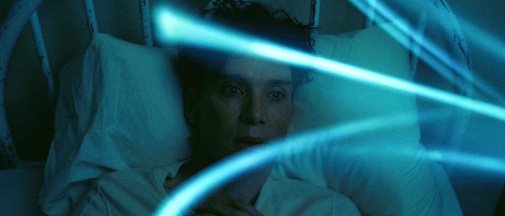
BEST DIRECTOR
Christopher Nolan, OPPENHEIMER
Until now, 67 NYFCC winners have gone on to be Oscar-nominated, and 28 won. Statistically, that amounts to 74% and 31%, respectively. Counting only the 21st century, 71% of victors get nominated by AMPAS, and 42% win the little golden man.
The first NYFCC victor to be snubbed by AMPAS was the organization's second winner – Rouben Mamoulian for The Gay Desperado. The most recent disconnect between the two happened last year, when the New York critics awarded S.S. Rajamouli for RRR. Conversely, the most recent winner to take both prizes was Jane Campion, for The Power of the Dog.
It's notable that Christopher Nolan won because, despite his movies' popularity, none of his past works ever took home a single NYFCC prize. They've been runners-up, though never in Best Director. Indeed, it took three contentious rounds of voting before the NYFCC agreed on Nolan as their victor.
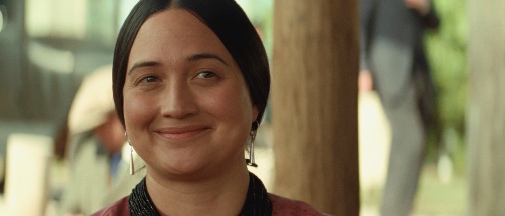
BEST ACTRESS
Lily Gladstone, KILLERS OF THE FLOWER MOON
Overall, 71 of NYFCC Best Actress champions were nominated for the Oscar, or 80%. Thirty-one won, or roughly 35% of the critics' chosen performances. In the 21st century, 16 wins resulted in nominations with AMPAS, and only four victories – 70% and 17%, respectively. In some cases, the two voting bodies disagreed about category placement. There was Agnes Moorehead in 1942 for The Magnificent Ambersons and Peggy Ashcroft in 1984 for A Passage to India. The latter went on to win the Best Supporting Actress Oscar.
The first disconnect between awards happened in the NYFCC's inaugural year, when the critics voted on Greta Garbo as the Best Actress of 1935 for the Oscar-snubbed Anna Karenina. The last time an NYFCC victor won the Academy's vote was in 2013 when Cate Blanchett stunned in Blue Jasmine.
Lily Gladstone is the first Native American thespian to win the NYFCC Best Actress award. She's also the first Scorsese actress to win a prize from this organization. According to NYFCC members on Twitter, Gladstone won in the first round of voting by a landslide.
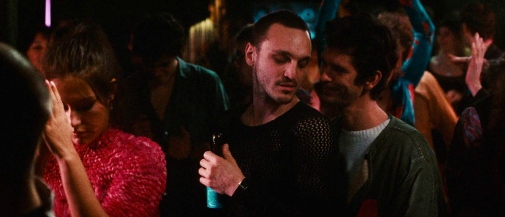
BEST ACTOR
Franz Rogowski, PASSAGES
In its first 88 editions, the NYFCC Best Actor winner went on to be Oscar-nominated 78 times, or 89%. Thirty-nine won AMPAS' golden trophy, or 44%. Thinking only of this century's data, the percentages are as follows: 74% get nominated for the Oscar, and 26% win. Casey Affleck is the last performer to win both the NYFCC Best Actor prize and the Academy Award.
Franz Rogowski is the first German thespian to win this particular prize.
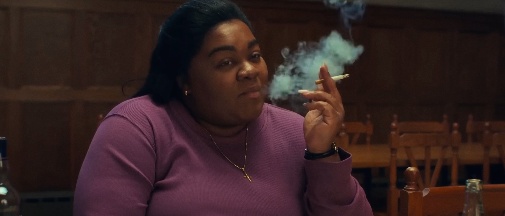
BEST SUPPORTING ACTRESS
Da'Vine Joy Randolph, THE HOLDOVERS
Unlike their lead counterparts, the NYFCC's Supporting Acting prizes were only implemented in 1969. Since then, 39 performances have been nominated by AMPAS, and 15 won. Statistically, that adds up to 72% and 28%, respectively. Looking only at 21st-century numbers, we get 74% getting the Oscar nomination and 30% winning. The last time the two organizations aligned on their winner was in 2019, when Laura Dern won for Marriage Story.
As with Best Actress, some of these victors were differently categorized by AMPAS. In 1974, Valerie Perrine won the NYFCC as a supporting player but was nominated as Best Actress at the Oscars. The same fate befell Talia Shire in 1976, for Rocky.
In the past few years, the New York critics seemed to be moving away from Oscar-friendly contenders in their Best Supporting Actress vote. However, Da'Vine Joy Randolph breaks that trend. She's also the second actress to win the award from an Alexander Payne flick. The first was Virginia Madsen for Sideways.
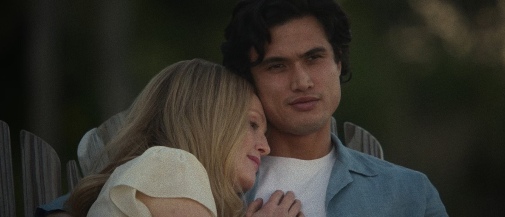
BEST SUPPORTING ACTOR
Charles Melton, MAY DECEMBER
As in Best Supporting Actress, 39 of the NYFCC's Supporting Actor winners scored Oscar nominations. Seventeen of them won the Academy Award, too. Statistically, this means 72% and 31%. In the 21st century, these numbers increase to 74% and 35%, respectively.
Weirdly enough, unlike the other categories within this critics circle, the prize has grown closer to the Academy over the last few years. Our most recent winner of both NYFCC and Oscar came just last year, with Ke Huy Quan in Everything Everywhere All At Once.
Speaking of our reigning Best Supporting Actor champion, Charles Melton is only the second thespian of Asian descent to score this trophy in the NYFCC's history.
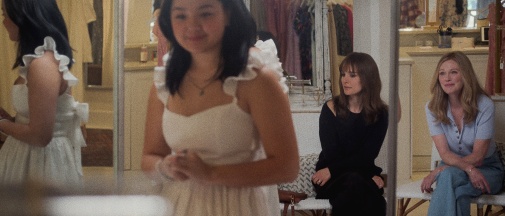
BEST SCREENPLAY
Samy Burch, MAY DECEMBER
It took until 1956 for the NYFCC to implement a Screenplay prize. Even then, they weren't consistent in awarding it until 1966. Considering all pre-2023 65 winners, 51 received Oscar nominations, and 20 won the big prize. That translates to 78% and 31%, respectively. If you just count 21st-century results, then it's 78% nominated and 17% victorious. The last time both organizations honored the same film was in 2016, when Kenneth Lonergan's Manchester by the Sea took home the NYFCC award and the Best Original Screenplay Oscar.
May December is the first Netflix-distributed film to win and the first Todd Haynes title. Furthermore, it marks the rare occasion when a writer gets the prize for their first-ever feature. Sadly, Burch's second such production is struggling to see the light of day – Coyote v. Acme is still searching for distribution after being dropped by Warner Bros.
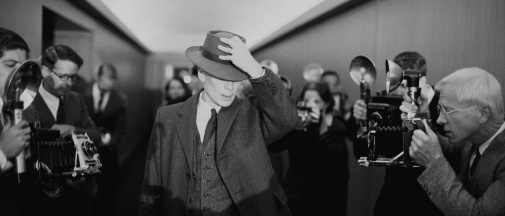
BEST CINEMATOGRAPHY
Hoyte van Hoytema, OPPENHEIMER
As we go down the prizes, we find ever-younger categories. Best Cinematography was inaugurated in 1980. Since then, 46 productions took the award, 25 of which secured an Oscar nomination later in the season, or 54%. Nine of them won, or 20%. In the 21st century, the percentages are 58% for nominations and 21% for victories. The last film to win both prizes was Alfonso Cuarón's Roma in 2018.
One should note that 2020's winner, the Small Axe film quintet, wasn't eligible for the Oscars. It was, however, nominated for the Emmy in this sole category.
After Top Gun: Maverick last year, the NYFCC is on an IMAX fix regarding their Cinematography award. As mentioned before, Oppenheimer is the first Christopher Nolan picture to win any prize from the NYFCC.

BEST NON-FICTION FILM
Frederick Wiseman, MENUS-PLAISIRS – LES TROIGROS
This prize, first awarded in 1980, was previously named Best Documentary. Between its inaugural year and last season, 39 films won the honor, with only one tie, in 2005, when Grizzly Man and The White Diamond were both victorious. One should also mention that, though the NYFCC-winning Hoop Dreams didn't get into Best Documentary at the Oscars, it did score an equally impressive Editing nomination.
Nineteen of the NYFCC winners went on to Oscar nominations, and seven even won the Academy Award. This translates to 49% and 18%, respectively. Counting only the 21st century, 54% of these winning documentaries scored a nod from AMPAS, and 17% took the Oscar.
Since 2016, when O.J.: Made in America was voted victorious, every NYFCC winner went on to get an Oscar nomination. It'll be interesting to see if Menus-Plaisirs perpetuates the tradition. The streak would be even longer if not for the 2015 winner – In Jackson Heights. Curiously, that marks the first time Frederick Wiseman won the award. The second was this year, of course.

BEST ANIMATED FILM
Hayao Miyazaki, THE BOY AND THE HERON
The NYFCC implemented a Best Animated Film category even before the Academy, starting in 1999. However, in 2011, no prize was given, presumably due to a lack of passion in the voting body. Of the eligible titles, 19 received Oscar nominations, and eight won – 90% and 38%. The last picture to get both prizes was the first Spider-Verse movie, back in 2018.
With The Boy and the Heron, Hayao Miyazaki won his fourth NYFCC award. He's the record-holder for artists with the most Animated Feature prizes from the organization. Sylvain Chomet is trailing behind, with two trophies to his name.

BEST FOREIGN LANGUAGE FILM
Justine Triet, ANATOMY OF A FALL (France)
We come to a conundrum as we reach the Best Foreign Language Film category. Because of the Academy's submission system, many NYFCC winners weren't even eligible for the corresponding Oscar. Moreover, AMPAS implemented the honor in 1947 as an honorary award. It only became an official category with a full set of nominees in 1956. The NYFCC started giving out their prize in 1937. However, they kept having years with no such prize until things got sorted out and normalized around the 80s. From its first year to the last season, there have been 71 winners.
For this piece, let's count every Critics Circle winner who went on to receive any Oscar honor. That leaves us with 43 titles, 61% of the total, and 17 Academy Award winners, or 24%. In the 21st century, the numbers are 52% and 22%. The last time an NYFCC Best Foreign Language Film victor won an Oscar was Parasite, in 2019.
The French selection committee infamously snubbed Anatomy of a Fall, ending with the Taste of Things as France's official submission for the Oscars. In the context of the NYFCC, Triet's film is the country's 28th victory.

BEST FIRST FILM
Celine Song, PAST LIVES
The NYFCC has awarded their Best First Film prize since 1997. As with the previous category, I counted every picture that went on to nab at least one Oscar nomination. Of the 27 NYFCC awardees, 14 were later embraced by AMPAS, with three of them winning Oscars – 52% and 11% of them, respectively. Interestingly, the most common place to find these flicks is in the acting categories, like Aftersun from last year.
With Past Lives, Celine Song becomes the fifth consecutive woman to take the NYFCC prize and the first person of Asian descent.
Do you think any of these results are predictive for the rest of the season, or will the New York Film Critics Circle prove an unlikely iconoclast? On a more celebratory note, what win made you happiest?
